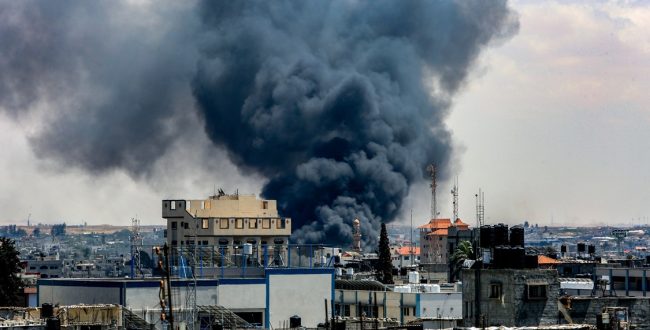Currently, the question on everyone’s mind is whether Itamar Ben-Gvir has a right, as a Jew and an Israeli minister, to visit the Temple Mount/al-Aqsa Mosque. Participating in this discussion is to dance to the Kahanist from Hebron’s tune. The real question should not be whether any jew has the right to visit the site. The current status-quo allows jews to visit the mount during visiting hours and under certain restrictions. As long as there aren’t additional restrictions on entrance for MK’s or ministers, the minister for National Defense has this right as well. But as Aviad Hacohen, professor of law and graduate of Religious Zionist institutions, said: having the right does not mean we should invoke it here and now. The question should be what is the cost of invoking this right. If, for example, this provocative visit by the Kahanist minister will lead to bloodshed and hurt Israeli interests, is it still worth invoking it? Does Ben-Gvir’s right to visit the mount overpower Israelis and Palestinians’ right to live in security and peace? Does not Israel’s interest in peace with Jordan overpower Ben-Gvir’s right to visit the mount? And so on.
Similar to Sharon’s visit, more than twenty years ago, this visit is interpreted as a provocation and a sign for what’s coming: loss of control over the Mount as a prelude of their collective disintegration
From the moment Ben-Gvir became the minister for National security, he is no longer a private citizen. He represents the state of Israel. Due to his openly hawkish and racist views and due to the fact that his wife is a prominent Temple activist, he consists a red flag for the Palestinians. When he goes to the Mount as the Israeli Minister in charge on the police, who control the mount in the name of the state of Israel, the visit becomes a public and official statement: what was will no longer be. Currently, the status qou is a “dead letter”. Jews have been praying openly on the mount, under police protection and in front of Waqf guards, since the summer of 2017. The status-quo can be an effective tool to reduce tensions, but only if its conditions are accepted by both sides. This is not the situation today and therefore the discussion regarding Ben-Gvir’s pilgrimage has no relation to the status quo, but rather to the Israeli policy.
The very fact that the incoming minister, a well-known provocator, announced his plans ahead of time, is an indicator of his real intention. And, in fact the subject has been at the center of public attention. Every moderate religious- Zionist speaker, who had distanced himself from Ben-Gvir yesterday, is now passionately defending his right to enter the Mount. And what about the Palestinian’s rights? the al-Aqsa Mosque stands at the heart of the Holy Esplanade for hundreds of years more than both Jewish Temples together. The Muslim’s had conquered Jerusalem from the Christian’s (not from the Jews), when the Mount was in ruins, they restored its sanctity.
In the modern era, the Palestinian national ethos was established around the sanctity of al-Aqsa Mosque. Palestine is considered the blessed surroundings of the Mosque (Quran 17:1). The Palestinians see their remaining (alleged) control on the Mount as a symbol of their collective destiny and belonging to the land, the last bastion of their steadfastness, Identity and collective dignity, both religious and national.
Similar to Sharon’s visit, more than twenty years ago, this visit is interpreted as a provocation and a sign for what’s coming: loss of control over the Mount as a prelude of their collective disintegration. That is exactly what Ben-Gvir is aiming for.
Instead of focusing on violence or over the dichotomy of “for and against” visiting the Mount, I suggest a different conversation: what is Israel’s direction? Are we striving for integration in the region? for peace and prosperity? or do we wish to go back, to the vicious circle of religious-nationalist violence? in shifting the debate to this question I think we can avoid dancing to Ben-Gvir’s tune and set our own tempo, setting the tones in accordance to the values of the equality camp and the liberal public.
Finally, I believe that a debate regarding Jewish rights on the Mount must be connected to a discourse over the Palestinian’s rights outside the Mount, and throughout the Land.
This article was translated from Hebrew with the help of Hillel Levi-Faur.


















